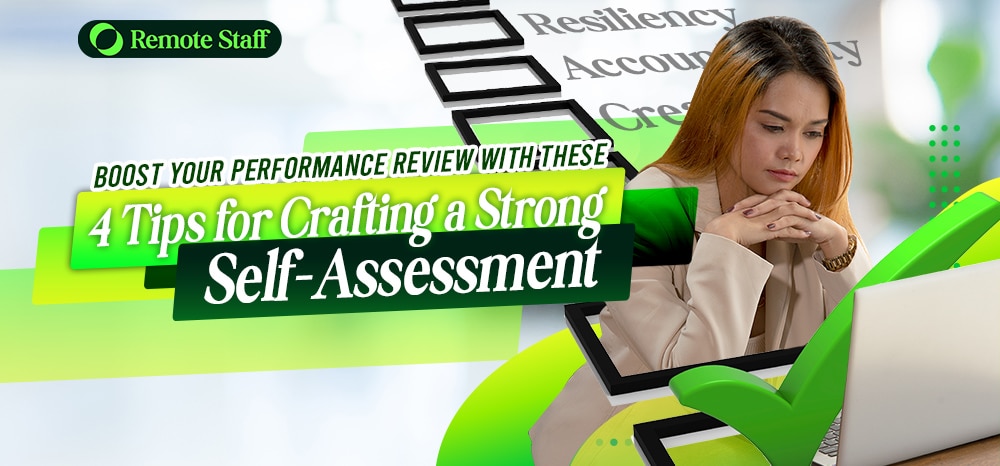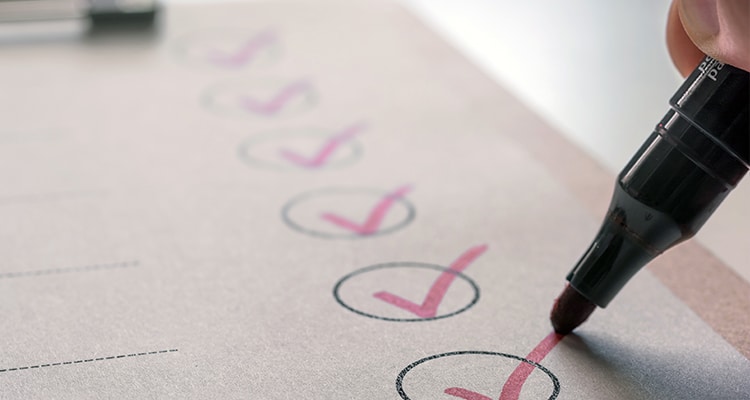As a remote worker, you need to work on your craft to provide your clients with better output. And a helpful starting point is their feedback.
Whether positive or negative, you should know how to effectively receive feedback and amend your performance accordingly.
But sometimes, these performance reviews include a self-assessment component. And that can be quite daunting to do.
Why Are Self-Assessments Important?
Wait, why do companies and clients include a self-assessment part in your performance review?
Basically, self-assessments are evaluations of an individual’s own performance, behaviors, or skills.
These are crucial because they give you an opportunity to self-reflect and think about your strengths and weaknesses. Not many people step back or have the time outside of working hours to critique his or her own work- and self-assessment provides you with the opportunity to do just that.
Because when you critique your own work, you gain self-awareness and better insights into growing as individuals – all while fostering more accountability.
So what do you write on your self-assessment? Here are 4 tips for crafting a strong self-assessment to boost your performance review:
Don’t Shy Away From Your Achievements
Filipinos typically hesitate to report on their achievements when doing self-assessments because they fear that their boss might think they’re arrogant. But I tell you, that’s not the case.
You shouldn’t hesitate to document your achievements. These can provide your clients with evidence of your contributions that might otherwise be overlooked.
It also shows your strengths as a remote worker. And the progress you made when you hit your KPIs during the evaluation period.
But more importantly, describe your process for achieving these goals.
By doing this, you show your problem solving skills, initiative, and drive — which is a big plus for your performance reviews.
Reflect on Your Mistakes and Weaknesses
No one is perfect. We all make mistakes. But did you know that taking responsibility for your mistakes and weaknesses is a green flag?
Especially when you frame them as opportunities for improvement.
Reflecting on your mistakes and weaknesses demonstrates to your boss that you are self-aware of your shortcomings and have a clear understanding of what you need to improve on.
These can also provide accountability for your results and output.
No Backbiting or Bashing
When we make mistakes or have poor performance, it’s easy to blame others. However true that might be, your self-assessment is not the right avenue for that feedback.
Remember, a self-assessment is about you. It’s not for criticizing your superiors or colleagues or assigning blame elsewhere for your poor performance.
This gives your self-assessment a more professional feel as it focuses on your own personal growth and development.
List Your Goals and Objectives
Lastly, include your goals and objectives in your self-assessment. By doing this, you’re providing a clear picture of what you’re working towards.
This way, they can look into your priorities and see how they fit into your company or client’s long-term goals.
It also shows the drive and ambition you have towards your career, and this can be a good catalyst for coaching and client feedback from your superiors.
Clients will see that you take your career seriously and are invested in your future.
With the tips above, you can definitely use your self-assessment to boost your performance review for better remote working opportunities.
Who knows? It might even lead to a promotion or a lucrative career opportunity.
And if you’re looking for remote working opportunities, you can sign up through Remote Staff for the best online job listing for Filipinos.
Remote Staff offers long-term remote working careers in different fields. And when you use your self-assessment well, you can reach greater heights in your chosen field. Cheers!






